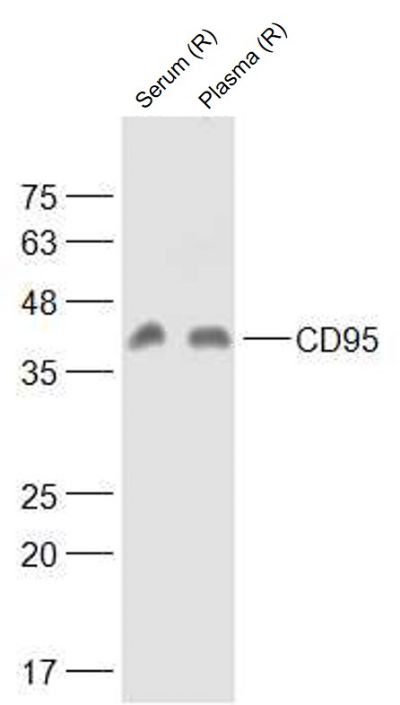Fas antibody [DX2]
GTX10460
ApplicationsFlow Cytometry
Product group Antibodies
ReactivityHuman
TargetFAS
Overview
- SupplierGeneTex
- Product NameFas antibody [DX2]
- Delivery Days Customer9
- Application Supplier NoteFACS: 4-20 microg/ml. *Optimal dilutions/concentrations should be determined by the researcher.Not tested in other applications.
- ApplicationsFlow Cytometry
- CertificationResearch Use Only
- ClonalityMonoclonal
- Clone IDDX2
- ConjugateUnconjugated
- Gene ID355
- Target nameFAS
- Target descriptionFas cell surface death receptor
- Target synonymsALPS1A, APO-1, APT1, CD95, FAS1, FASTM, TNFRSF6, tumor necrosis factor receptor superfamily member 6, APO-1 cell surface antigen, CD95 antigen, FASLG receptor, Fas (TNF receptor superfamily, member 6), Fas AMA, TNF receptor superfamily member 6, apoptosis antigen 1, apoptosis signaling receptor FAS, apoptosis-mediating surface antigen FAS, mutant tumor necrosis receptor superfamily member 6, tumor necrosis factor receptor superfamily, member 6
- HostMouse
- IsotypeIgG1
- Protein IDP25445
- Protein NameTumor necrosis factor receptor superfamily member 6
- Scientific DescriptionMany cells can be activated to undergo apoptosis following the interaction of selected ligands with cell surface receptors. One of the most studied receptors include the Fas receptor. Apoptosis mediated by both signaling cascades results in activation of a family of cystein proteases known as caspases. Engagement of Fas by its ligand, or by an appropriate antibody, results in the rapid induction of programmed cell death in susceptible cell lines. This process bypasses the usual long sequence of signaling enzymes and immediately activates preexisting caspases.
- ReactivityHuman
- Storage Instruction-20°C or -80°C,2°C to 8°C
- UNSPSC12352203







![FACS analysis of human peripheral blood using GTX80053 Fas antibody [LT95] (APC).](https://www.genetex.com/upload/website/prouct_img/normal/GTX80053/GTX80053_20191025_AP_006_370_w_23061322_773.webp)